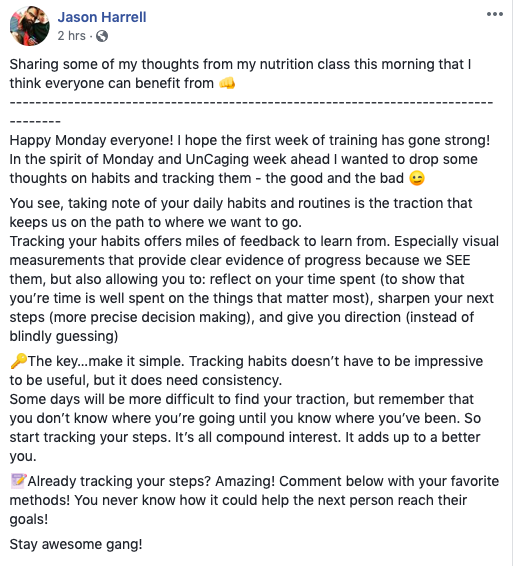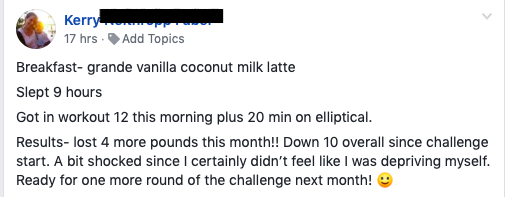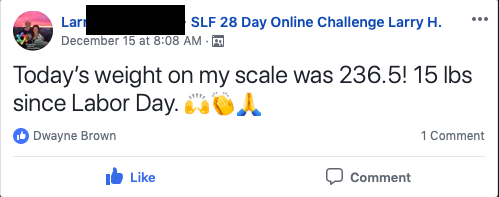I started a 1000-piece puzzle on Friday. Like a literal puzzle. It's a panorama of Citi Field during a Mets game. I've had this puzzle for years in it's wrapper sitting on a shelf. For some reason I thought it was time for me and 4 year old Graham to tackle this thing.
"Hey Graham, you wanna do a puzzle?" That's how I proposed it to him and he was all about it. Now I'm pretty sure he thought that I meant one of his like 10-piece board puzzles. I tried to explain to him that this puzzle would take days if not weeks to complete.
(Sidenote: if you want to test your intelligence/reasoning, try explaining the passage of time to a toddler...)
Graham said he understood so we set off to put this puzzle together. Graham hung in for all of maybe 15 minutes. For some reason searching for the corner and edge pieces wasn't as intriguing as playing with Magnatiles. Go figure.
People treat new fitness programs like 4 year olds treat 1000-piece puzzles. They think "this sounds like fun". Then it's "oh, I have to do all this boring stuff before I can do the cool stuff?". Next step: "wow, we're still doing the boring stuff." Final step, "this is boring, that looks like fun, let's go do that." Repeat the process.
Thing is if you've ever done a giant puzzle you know that you have to find the edges and corners or else there is no cohesion. You end up trying to fit sections together that have nothing to do with each other.
The same goes for your workout routine and working out in general. There are corners and edges that you have to figure out before you get to the cool stuff. They would be a baseline levels of flexibility/mobility, strength and coordination to name a few. Now I'm not saying this isn't boring or that I enjoy it. I'm saying it's necessary. Necessary for safety and efficiency.
Also, I haven't touched on the other constraints that come into play. For instance I've commandeered our kitchen/dining room/mail/general odds & ends table for this puzzle endeavor. There's only so long Alli is going to allow this go on. Knowing that I need to get this puzzle together as quickly as possible.
Again the same goes with your workouts assuming you want to reach your goal as fast as possible. This makes finding the "edges & corners" all that more important. Also time won't be the only constraint that you have to deal with probably. The more constraints you add in the more you need the structure that the edges and corners provide.
Since Friday, Graham hasn't really sat down to help me with the puzzle. He has taken notice of the progress that has been made though. Hopefully he's realizing the importance of devoting time to the boring necessary stuff.



 There a lot of gems in this status. Jason mentions how tracking is the key toward maintaining progress and will help with decision making. He also mentions tracking includes tracking both the good and bad habits. This is super important because people tend to forget that progress is not only doing more good stuff but also (and sometimes firstly) doing less bad stuff.I mention this as I'm about to start another 28 Day Online Fitness challenge a week from today. The type of habit tracking that Jason is talking about is the backbone of the challenge. There are two things members of the challenge must do everyday: they must post a picture of everything they eat and they must post a daily gratitude post. The challenge basically works to instill these two habits on a daily basis.Sure there are personal nutrition plans and workouts and lots of info given throughout the challenge. That being said though, the people who get the best results from the challenge are the ones who adhere to posting their food pics and getting their gratitude posts up everyday. It's almost too simple for some people. Often at the beginning of the challenge I have to get people to concentrate on doing just those two things before they start trying to do too much.Since I brought up results. Let's talk about some of the results that people have gotten from the challenge. The most obvious one is weight loss. I've seen people lose 5-12lbs during the challenge. The great thing about this weight loss is that I can say that everyone who has lost weight has kept that weight off months later. I attribute this to learning how to track and maintain good habits.Some other results challenge members have seen are clothes fitting better, strength and energy increases, improved time management and increased confidence among other things. I might be more proud of these results than the weight loss (good news for me is that they usually come together). Particularly when people start talking about getting stronger and once again doing things they used to do regularly. Or when people mention they finally bought a new piece of clothing that they hadn't been comfortable buying before. These things really get me in the feels.This next round of the challenge begins on the 22nd and goes through May 19th. This will give you the chance to head into Memorial Day and summer having developed life changing habits and feeling like your best self. Intrigued? Fill out the quick form below and I'll get back to you ASAP.[contact-form][contact-field label="Name" type="name" required="1" /][contact-field label="Email" type="email" required="1" /][contact-field label="What do you want to get out of the challenge?" type="textarea" required="1" /][/contact-form]
There a lot of gems in this status. Jason mentions how tracking is the key toward maintaining progress and will help with decision making. He also mentions tracking includes tracking both the good and bad habits. This is super important because people tend to forget that progress is not only doing more good stuff but also (and sometimes firstly) doing less bad stuff.I mention this as I'm about to start another 28 Day Online Fitness challenge a week from today. The type of habit tracking that Jason is talking about is the backbone of the challenge. There are two things members of the challenge must do everyday: they must post a picture of everything they eat and they must post a daily gratitude post. The challenge basically works to instill these two habits on a daily basis.Sure there are personal nutrition plans and workouts and lots of info given throughout the challenge. That being said though, the people who get the best results from the challenge are the ones who adhere to posting their food pics and getting their gratitude posts up everyday. It's almost too simple for some people. Often at the beginning of the challenge I have to get people to concentrate on doing just those two things before they start trying to do too much.Since I brought up results. Let's talk about some of the results that people have gotten from the challenge. The most obvious one is weight loss. I've seen people lose 5-12lbs during the challenge. The great thing about this weight loss is that I can say that everyone who has lost weight has kept that weight off months later. I attribute this to learning how to track and maintain good habits.Some other results challenge members have seen are clothes fitting better, strength and energy increases, improved time management and increased confidence among other things. I might be more proud of these results than the weight loss (good news for me is that they usually come together). Particularly when people start talking about getting stronger and once again doing things they used to do regularly. Or when people mention they finally bought a new piece of clothing that they hadn't been comfortable buying before. These things really get me in the feels.This next round of the challenge begins on the 22nd and goes through May 19th. This will give you the chance to head into Memorial Day and summer having developed life changing habits and feeling like your best self. Intrigued? Fill out the quick form below and I'll get back to you ASAP.[contact-form][contact-field label="Name" type="name" required="1" /][contact-field label="Email" type="email" required="1" /][contact-field label="What do you want to get out of the challenge?" type="textarea" required="1" /][/contact-form]


